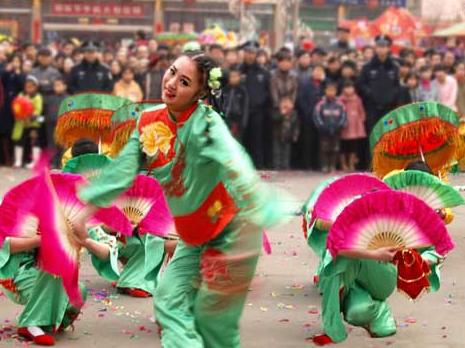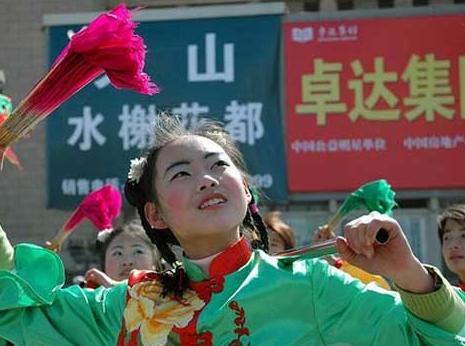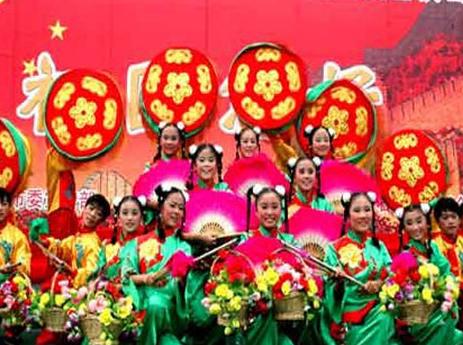
Jingxing Lahua is a type of Yangko in North China. As a special form of folk art prevalent in Jingxing County, it was originated in the Ming and Qing Dynasties and has a fairly long history. Jingxing Lahua is derived from flower fair held on street and square during folk festival, temple fair, celebration and worship.

Jingxing County in Shijiazhuang City, Hebei Province is located at the foot of the eastern foothills of Taihang Mountains and in the western border of Hebei Province, 40km from Shijiazhuang City in the east. The traditional Jingxing Lahua is endowed with distinct artistic features. Its dancing rhythm is created by such motions as shoulder wresting, wrist turning, arm gnarling, leg whiffing and foot casting. With vase, decorated umbrella, colored fan, Overlord's Whip, Taiping Board, etc. as major props and accompanied by Lahua Music which can be viewed as an independent type of music, Jingxing Lahua presents peculiar artistic features - strength, tenderness, boorishness and implicitness.

Origination of "Lahua" has several versions. The first is that "Lahua" is the name of dance choreographed by a countrywoman named "Lahua" on the basis of her love story. The second version goes in this way: a man named Yang Mingju from Hengjian served as the county magistrate of Xihua County in Henan during the Wanli Period of the Ming Dynasty. When passing by Luoyang (a city famous for peony) on the way back home after his office term expired, he plucked bunches of peony and carried them to his hometown, where he offered the peony – "King of Flowers" - as sacrifice in the Laojun Temple. Due to inconvenient traffic, conveyance of peony in the nearly 500km journey was finished merely by manpower, hence comes the name "Lahua" (flower pulling). In remembrance of peony's being transplanted in Jingxing County, some folk actors choreographed dance themed with this joyful event. Another version is that "Lahua" is the assonance of "Lahuang". As a consequence of long-term drought and years of chaos caused by war in Jingxing County, common people there had to leave their hometown to flee from famine, carrying their own children. They would sing, narrate their misfortunes and beg alms while walking on street. At long last, a fixed begging form - "Lahuang" was formed. As "Hua" is the assonance of "Huang" in local dialect, "Lahuang" was gradually called "Lahua".





